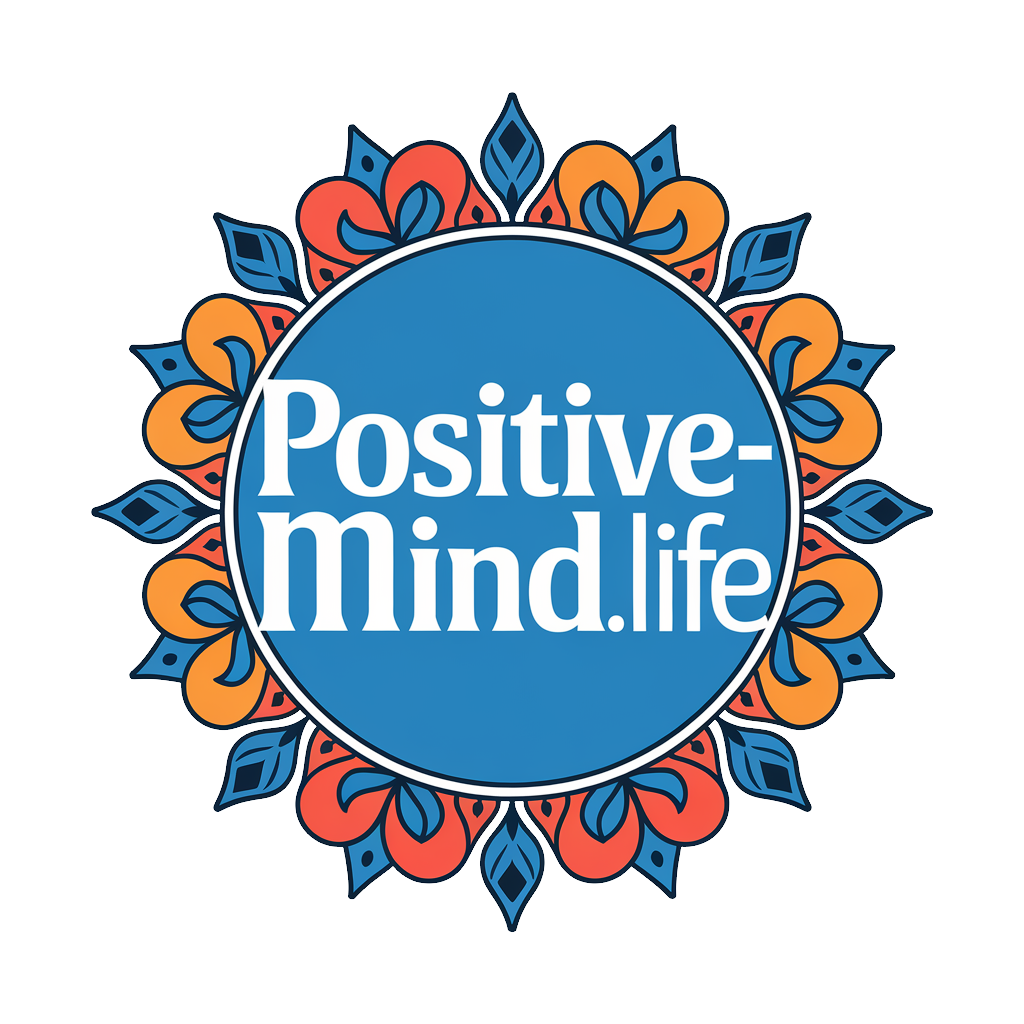Why Gratitude Journaling Is the Secret to Happiness!
Gratitude journaling is a powerful practice that can drastically boost your happiness. By consistently noting things you’re thankful for, you shift your focus from negativity to positivity. Research shows you can experience a 25% increase in overall well-being through this simple habit. It cultivates positive emotions and enhances emotional resilience against stress and challenges. Additionally, it rewires your brain, reinforcing self-worth and promoting mindfulness. Over time, you’ll notice richer connections to your thoughts and feelings. If you think about ways to enhance this remarkable practice, you might discover even more benefits waiting for you.
Key Takeaways
- Gratitude journaling shifts focus from negativity to positivity, enhancing overall happiness and fostering a more optimistic outlook on life.
- Regular practice reduces stress and improves emotional well-being, leading to greater life satisfaction and resilience against challenges.
- Acknowledging daily blessings cultivates positive emotions, boosting mood and reinforcing feelings of self-worth and contentment.
- Engaging in gratitude journaling enhances mindfulness, allowing for deeper connections with thoughts and feelings while promoting emotional regulation.
- Real-life testimonials from notable figures demonstrate how gratitude journaling contributes to mental resilience and transformative life changes.
Understanding Gratitude Journaling
Gratitude journaling is your personal tool for enhancing well-being and fostering a positive mindset. At its core, gratitude involves recognizing and appreciating the positive aspects of your life. This gratitude definition serves as the foundation for your journaling practice. By deliberately reflecting on what you’re thankful for, you cultivate a mindset that encourages resilience and optimism.
To master gratitude journaling, you can employ various journaling techniques. Start by setting aside a few minutes each day to write down at least three things you’re grateful for. This could range from small moments, like enjoying a warm cup of coffee, to significant achievements. Don’t just list these items; delve deeper into why each one matters. This process not only enhances your understanding of gratitude but also reinforces its significance in your daily life.
Additionally, consider employing prompts or themes, such as gratitude for relationships or personal growth. These targeted journaling techniques can help you explore different facets of your life, enriching your practice. As you consistently engage in gratitude journaling, you’ll find it becomes a powerful mechanism for reinforcing a positive outlook and an essential component of your well-being toolkit.
Benefits for Emotional Well-Being
When you engage in gratitude journaling, you actively cultivate positive emotions, which can significantly enhance your overall mood. Research indicates that this practice not only boosts feelings of happiness but also helps reduce stress levels, fostering a greater sense of emotional well-being. By regularly reflecting on what you’re thankful for, you can reshape your mindset and improve your resilience against life’s challenges.
Enhances Positive Emotions
Engaging in gratitude journaling can significantly enhance your emotional well-being by fostering positive emotions. This practice aligns with principles of positive psychology, which emphasize the cultivation of strengths and positive experiences to improve overall life satisfaction. By regularly reflecting on what you’re thankful for, you actively train your brain to focus on the positive aspects of your life, thus increasing your emotional intelligence.
Consider these benefits:
- Increased Resilience: Regular gratitude journaling helps you bounce back from setbacks by promoting a positive mindset.
- Improved Relationships: Expressing gratitude can enhance your social connections, fostering deeper relationships and emotional support.
- Greater Life Satisfaction: Acknowledging daily blessings boosts your overall happiness and contentment.
Research shows that individuals who engage in gratitude practices report higher levels of positive emotions, such as joy, optimism, and contentment. This shift in focus not only enhances your emotional state but also equips you with greater emotional intelligence, enabling you to navigate life’s challenges more effectively. By committing to gratitude journaling, you’re actively creating a mental environment conducive to lasting happiness and fulfillment.
Reduces Stress Levels
Shifting your focus towards gratitude not only enhances positive emotions but also plays a significant role in reducing stress levels. When you engage in gratitude journaling, you’re actively redirecting your thoughts away from stressors and negativity. This intentional practice fosters stress relief by allowing you to acknowledge and appreciate the positive aspects of your life, even amidst challenges.
Research indicates that individuals who regularly practice gratitude experience lower levels of cortisol, the stress hormone. This physiological response contributes to a more balanced emotional state, making it easier for you to navigate daily pressures. By documenting what you’re grateful for, you’re not just listing items; you’re training your brain to recognize abundance rather than scarcity, which promotes mental clarity.
Moreover, gratitude journaling cultivates resilience, enabling you to confront stressors with a more positive mindset. When you reflect on your blessings, you create a cognitive buffer against external pressures, enhancing your overall emotional well-being. Over time, you’ll find that this practice not only alleviates immediate stress but also establishes a robust foundation for long-term mental health. Embracing gratitude can, indeed, be a transformative tool in your journey toward a more centered and fulfilling life.
Enhancing Positive Thinking
How can gratitude journaling transform your mindset and enhance positive thinking? By consistently engaging in gratitude practices, you’re actively rewiring your brain to focus on the positive aspects of your life. Research indicates that this shift can lead to improved emotional well-being and a more optimistic outlook.
Engaging in gratitude journaling encourages you to:
- Acknowledge and appreciate the small joys in daily life.
- Develop positive affirmations that reinforce self-worth and resilience.
- Create a habit that counters negative thought patterns.
As you document what you’re grateful for, you activate the brain’s reward system, which fosters an appreciation for positive experiences. This process not only reduces rumination but also cultivates a lasting sense of happiness. Studies show that individuals who maintain gratitude journals report higher levels of positivity and lower levels of depression. By prioritizing gratitude, you’re not just noting what’s good; you’re training your mind to seek out the positive, making it easier to navigate challenges. In essence, gratitude journaling serves as a powerful tool for enhancing your positive thinking, ultimately leading to a more fulfilled and joyful life.
Cultivating Mindfulness and Presence
Cultivating mindfulness and presence can profoundly impact your emotional and mental well-being. By engaging in practices that promote mindful awareness, you learn to focus on the present moment, reducing distractions that often cloud your thoughts. Research demonstrates that mindfulness can lower stress levels, enhance emotional regulation, and improve overall satisfaction in life.
When you immerse yourself in the present moment, you create space to acknowledge and appreciate your experiences fully. This doesn’t just enhance your perception of daily events; it also fosters a deeper connection with your thoughts and feelings. As you practice mindfulness, you may notice how it helps you recognize negative thought patterns, allowing you to respond deliberately rather than react impulsively.
Additionally, integrating gratitude journaling with mindfulness amplifies these benefits. When you reflect on what you’re thankful for while being present, you reinforce positive emotions and cultivate a more resilient mindset. This synergy between gratitude and mindfulness ultimately transforms how you engage with your surroundings, promoting a richer, more fulfilling life. By mastering these techniques, you pave the way for sustained happiness and emotional balance.
Building Resilience Through Gratitude
Building resilience through gratitude can significantly enhance your ability to cope with life’s challenges. Research shows that gratitude practices foster a positive mindset, enabling you to navigate adversity more effectively. By regularly acknowledging what you’re thankful for, you shift your focus from stressors to strengths, reinforcing your emotional fortitude.
Consider the following key aspects of resilience building through gratitude:
- Reframing Perspectives: Gratitude helps you view setbacks as temporary, allowing for a more constructive response.
- Enhancing Social Connections: Expressing gratitude strengthens relationships, providing a support network during tough times.
- Promoting Positive Emotions: Regularly engaging in gratitude practices increases overall happiness, making you more adaptable to stress.
In essence, gratitude serves as a powerful tool for resilience building. By integrating gratitude into your daily routine, you’re not only cultivating a more optimistic outlook but also equipping yourself with the emotional resources necessary to bounce back from life’s inevitable hurdles. This proactive approach to resilience can transform challenges into opportunities for growth, ultimately leading you to a more fulfilling life.
Practical Tips for Journaling
Integrating gratitude into your life can be even more effective when you put pen to paper through journaling. To make the most of your gratitude journaling practice, consider using specific journaling prompts that guide your reflections. For instance, ask yourself, “What made me smile today?” or “Who do I appreciate in my life and why?” These targeted prompts can help you delve deeper into your feelings and foster a more profound sense of gratitude.
Establish a routine for your daily reflections. Whether it’s morning or evening, consistency will reinforce the habit. Aim to write for at least five to ten minutes each day, focusing on the positive aspects of your experiences. Research suggests that this practice can enhance emotional well-being, as it shifts your focus from negativity to positivity.
Moreover, variety can enhance your journaling experience. Occasionally, you might explore themes such as gratitude for challenges or the small joys you often overlook. This approach not only enriches your reflections but also deepens your understanding of gratitude’s role in your life. By integrating these practical tips, you’ll cultivate a more resilient mindset and elevate your overall happiness.
Real-Life Success Stories
Many individuals have transformed their lives through the simple yet powerful practice of gratitude journaling. The impact can be profound, evidenced by numerous celebrity testimonials and personal transformations that highlight its effectiveness. When you commit to this practice, you’ll find that it cultivates a mindset of abundance and positivity.
Consider the following examples:
- Oprah Winfrey: She credits her gratitude journal for her success and emotional well-being, emphasizing that it helps her stay grounded.
- Jim Carrey: He wrote himself a check for $10 million for acting services rendered and attributes his incredible career trajectory to his grateful outlook.
- Ariana Huffington: She advocates for gratitude journaling as a tool for mental clarity and resilience, noting significant shifts in her personal and professional life.
These stories illustrate that gratitude journaling isn’t just a trend; it’s a proven method for enhancing happiness and fulfillment. Research supports this, indicating that consistent gratitude practice leads to improved mental health, better sleep, and a stronger sense of connection. By adopting this practice, you, too, can unlock a pathway to transformative happiness.
Frequently Asked Questions
How Long Should I Spend on Gratitude Journaling Each Day?
You should allocate about 10 to 15 minutes daily for gratitude journaling. This time enhances the journaling benefits, allowing deeper reflection and fostering a positive mindset, ultimately leading to greater emotional resilience and well-being.
Can I Use Digital Tools for Gratitude Journaling?
Imagine typing your thoughts into a sleek digital app, capturing moments of gratitude effortlessly. Using digital tools enhances your journaling benefits, offering reminders and organization, making it easier to cultivate a consistent gratitude practice.
What if I Struggle to Find Things to Be Grateful For?
If you struggle to find things to be grateful for, focus on gratitude techniques that counteract your negative mindset. Start small, acknowledging simple joys, and gradually expand your awareness to foster deeper appreciation over time.
Is There a Specific Format for Gratitude Journaling?
There’s no one-size-fits-all format for gratitude journaling! You can explore various journaling techniques, using gratitude prompts like “What amazed me today?” to deepen your practice and unleash a flood of appreciation in your life.
How Can I Stay Consistent With My Journaling Practice?
To stay consistent with your journaling practice, implement these journaling tips: set a specific time daily, create a dedicated space, and use consistency strategies like reminders or challenges. This structure fosters commitment and deepens your reflective process.





